Legal Marijuana May Not Completely Quell Black Market Demand
Black market sales of marijuana thrived under a system that totally outlawed the drug. For decades, illicit sales lined the pockets of violent drug cartels and gangs. Legalizing marijuana, as California did with Prop. 64, would effectively quash this problem, or so it was believed. After all, when marijuana is sold in highly-regulated stores, it gives the government more control, it gives taxpayers a cut and it provides safe access for patients and users. However, recent analysis shows black market sales may not be completely eliminated. 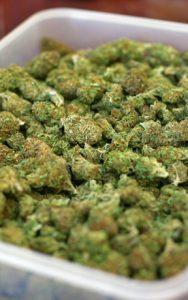
The San Francisco Chronicle looked at this issue in weighing the makeup of the black market.
First, there is the fact the California grows more marijuana than is consumed by residents. Prop. 64 did nothing to effect the laws in other states, but interstate borders aren’t always policed to the point every person crossing from one state to the next with marijuana would be caught. Secondly, the law did not give a rubber stamp to all growers or sellers of marijuana. Sellers have to be licensed by a state agency, and they must comply with a long series of rules that detail everything from plant testing to packaging labels to tracking. Continue reading
 Cannabis Law Group's Medical Marijuana Legal Blog
Cannabis Law Group's Medical Marijuana Legal Blog





 A recent article from
A recent article from 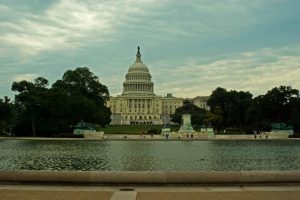 The previous attempt at the CARERS Act, which stands for Compassionate Access, Research Expansion, and Respect State, called for moving marijuana from the highest schedule and moving it down to a Schedule Two controlled substance.
The previous attempt at the CARERS Act, which stands for Compassionate Access, Research Expansion, and Respect State, called for moving marijuana from the highest schedule and moving it down to a Schedule Two controlled substance. 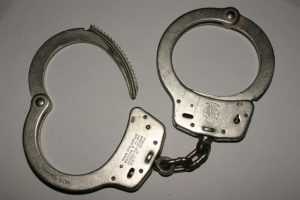 Currently, Sessions cannot use any federal money to go after medical marijuana in states where it is legal because of an amendment passed by Congress in 2014 that prohibits any federal taxpayer dollars from being spent for this reason. This means that U.S. Drug Enforcement Administration, any agency that falls under Sessions’ Department of Justice (DOJ), cannot go after those in the state-legal medical marijuana business.
Currently, Sessions cannot use any federal money to go after medical marijuana in states where it is legal because of an amendment passed by Congress in 2014 that prohibits any federal taxpayer dollars from being spent for this reason. This means that U.S. Drug Enforcement Administration, any agency that falls under Sessions’ Department of Justice (DOJ), cannot go after those in the state-legal medical marijuana business. 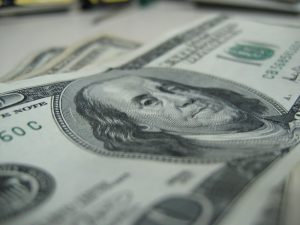 As discussed in this article, Los Angeles, San Francisco, and Alameda rank at the top of this list in terms of medical marijuana sales with Los Angeles being the highest on the list. With the medical marijuana business growing to this level over the past two decades, tax revenues have grown, as well, and this is part of the reason for the community support we are seeing for the legalization of recreational marijuana.
As discussed in this article, Los Angeles, San Francisco, and Alameda rank at the top of this list in terms of medical marijuana sales with Los Angeles being the highest on the list. With the medical marijuana business growing to this level over the past two decades, tax revenues have grown, as well, and this is part of the reason for the community support we are seeing for the legalization of recreational marijuana.  However, this last-minute budget resolution did not merely put off a government shutdown until at least September 2017. It also prevents the federal government from cracking down on medical marijuana in states where it is legal, according to a recent news article from
However, this last-minute budget resolution did not merely put off a government shutdown until at least September 2017. It also prevents the federal government from cracking down on medical marijuana in states where it is legal, according to a recent news article from 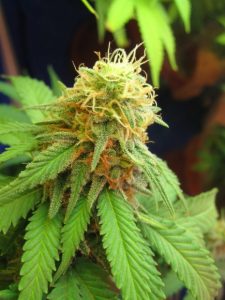 While opponents used to argue that it was a just a few very liberal states such as California that allowed people to use medical marijuana, that is no longer an argument that one can seriously make. According a recent News Article for the
While opponents used to argue that it was a just a few very liberal states such as California that allowed people to use medical marijuana, that is no longer an argument that one can seriously make. According a recent News Article for the  Many people are concerned that they will fail a drug test with positive sample and will do whatever they can to pass the test. This includes taking detox products that are available on the internet or at specialty vitamin stores, and it even includes using synthetic urine or another person’s urine. Since many testing centers watch the subject take the test with a mirror or directly, they even sell products that allow someone to discreetly provide a substitute sample. This is generally not a good idea and many people get caught.
Many people are concerned that they will fail a drug test with positive sample and will do whatever they can to pass the test. This includes taking detox products that are available on the internet or at specialty vitamin stores, and it even includes using synthetic urine or another person’s urine. Since many testing centers watch the subject take the test with a mirror or directly, they even sell products that allow someone to discreetly provide a substitute sample. This is generally not a good idea and many people get caught. As discussed in the article, even though Proposition 64 passed in the last election, in order to buy marijuana in California, patients still need a doctor’s recommendation and marijuana ID card, as the dispensaries will not be able to sell marijuana to the general public for at least several more months. This is in stark contrast to states like Colorado and Washington, where anyone who is over the age of 21 can walk into a dispensary and purchase any number of cannabis products.
As discussed in the article, even though Proposition 64 passed in the last election, in order to buy marijuana in California, patients still need a doctor’s recommendation and marijuana ID card, as the dispensaries will not be able to sell marijuana to the general public for at least several more months. This is in stark contrast to states like Colorado and Washington, where anyone who is over the age of 21 can walk into a dispensary and purchase any number of cannabis products.